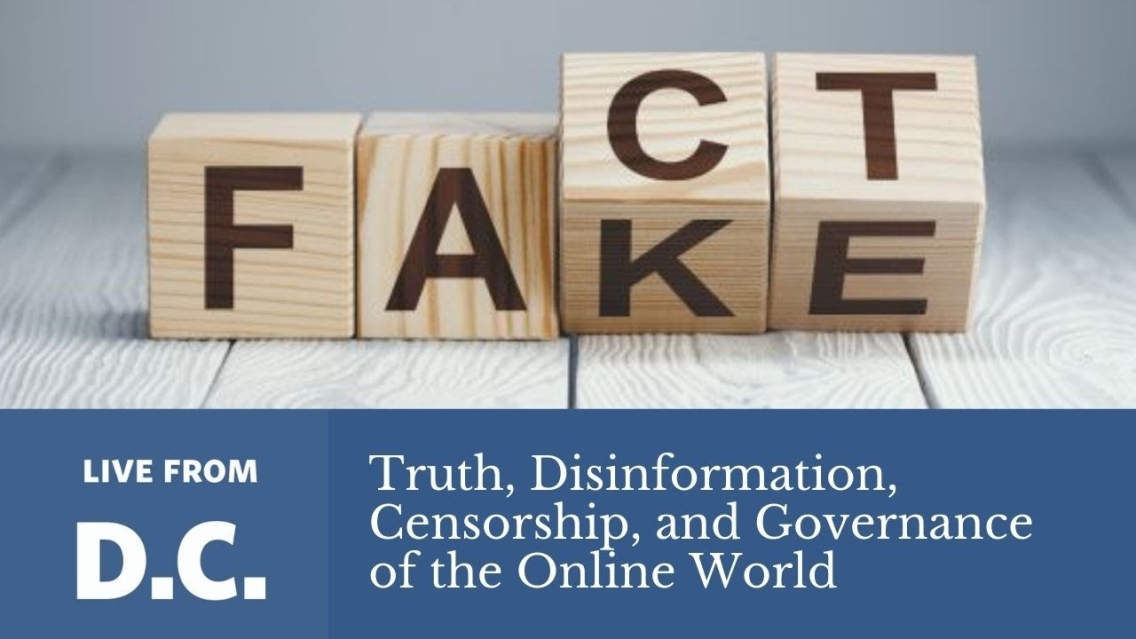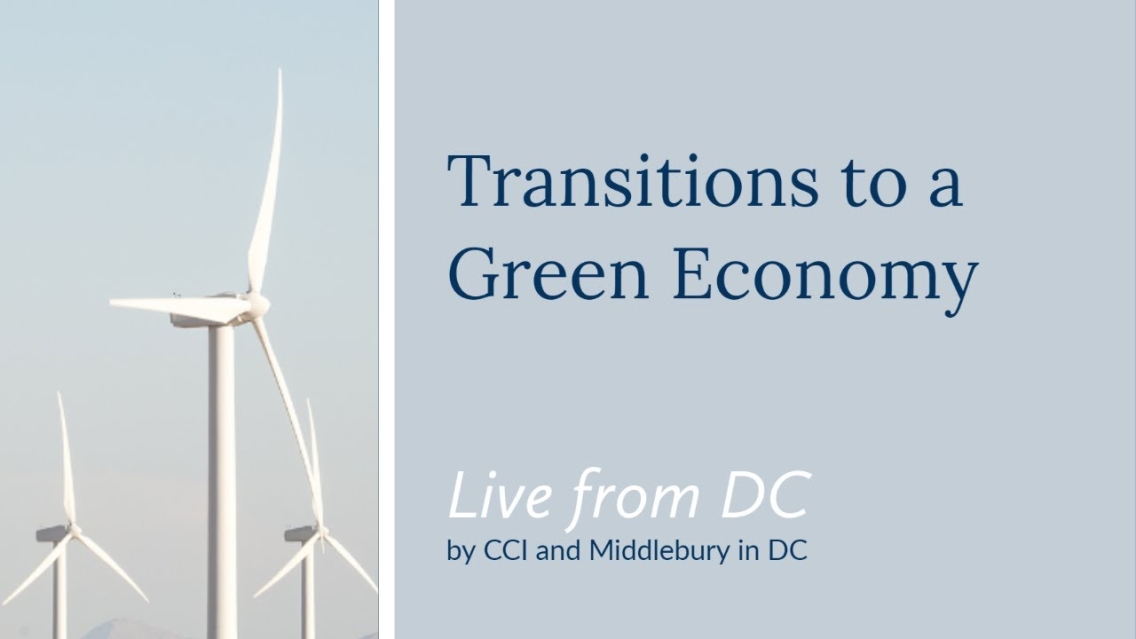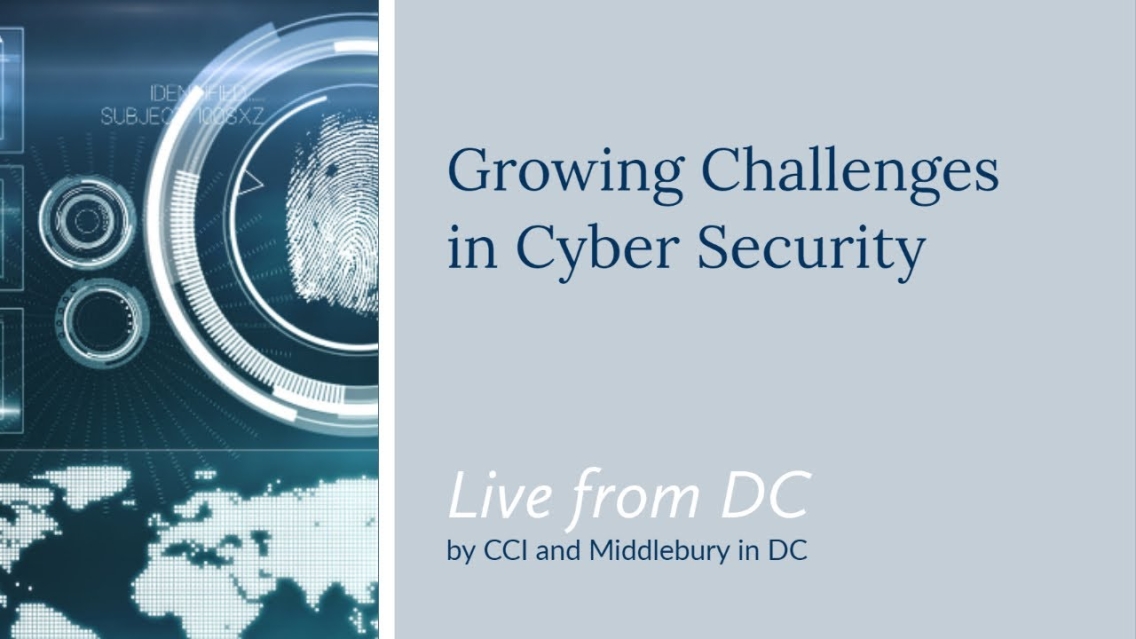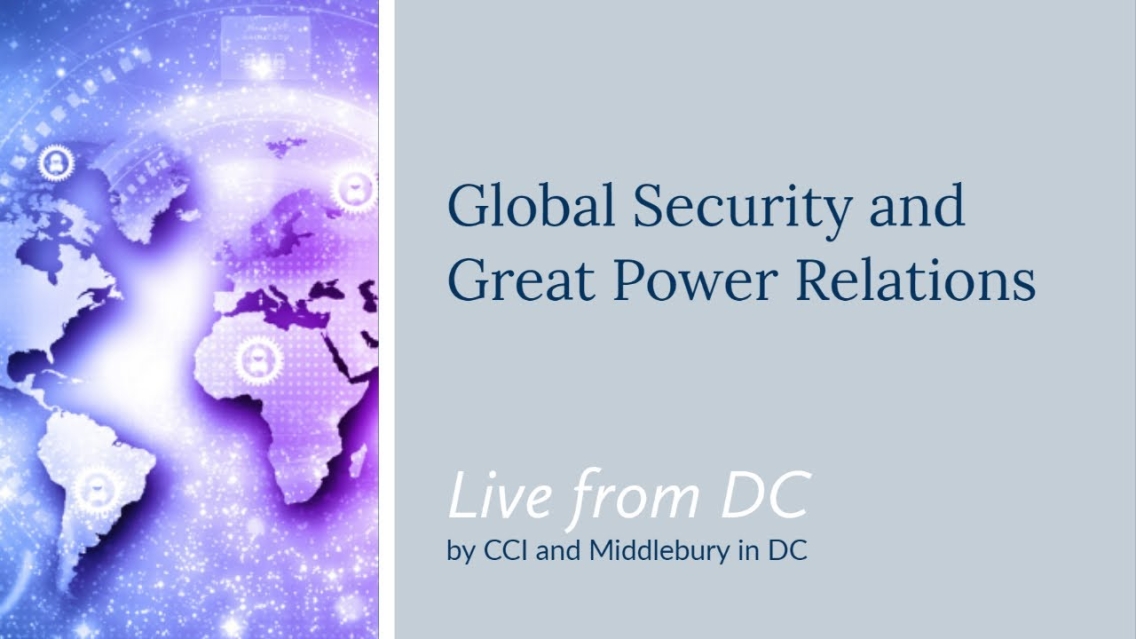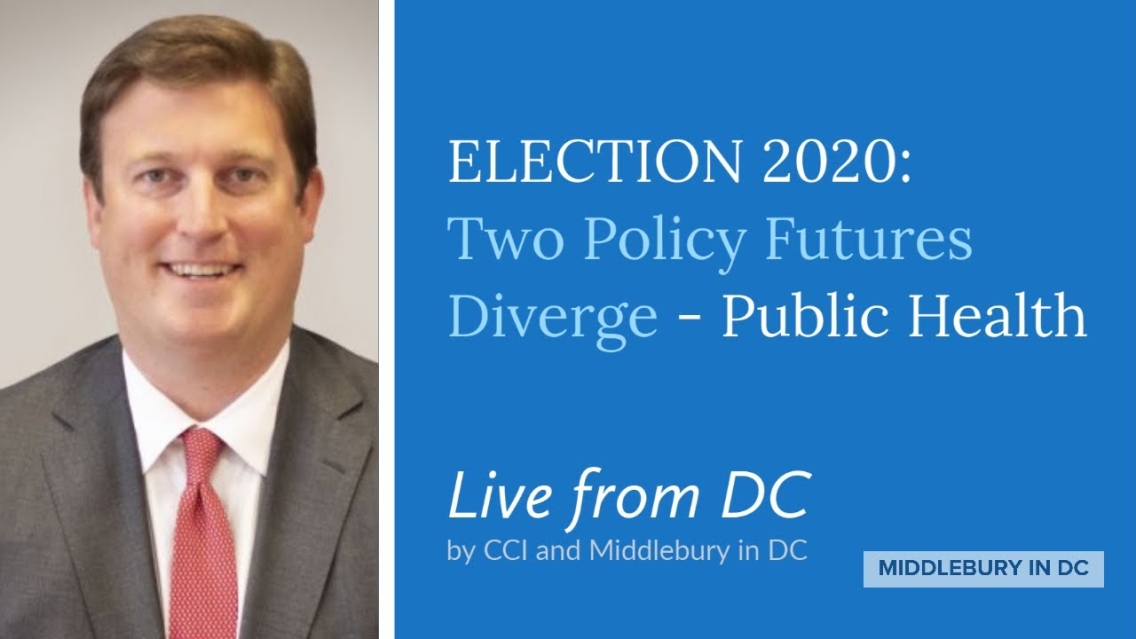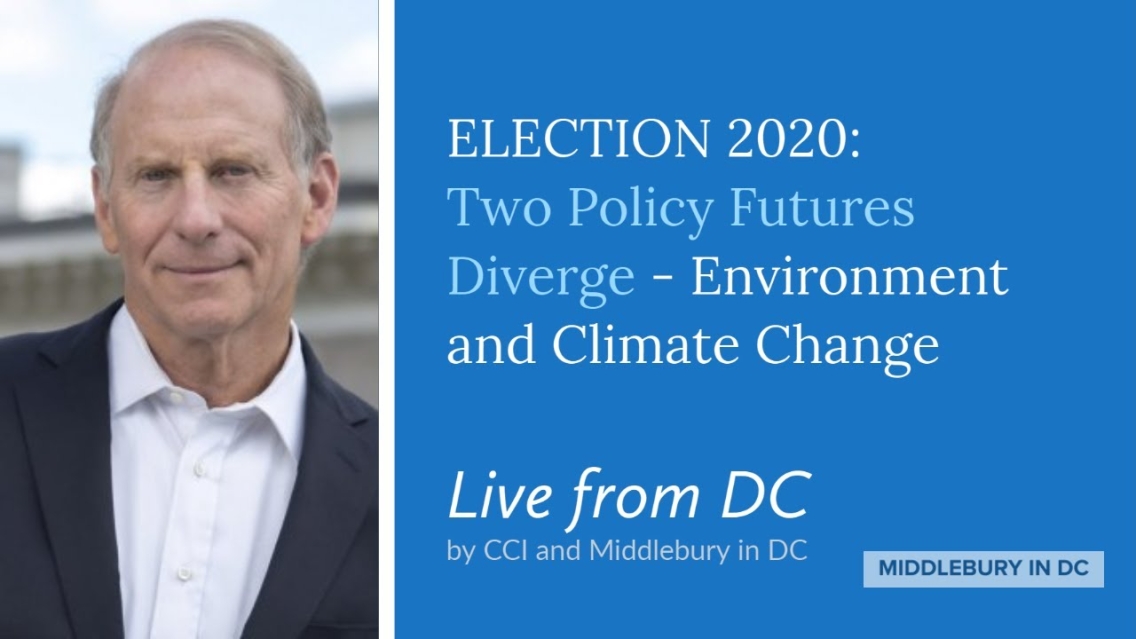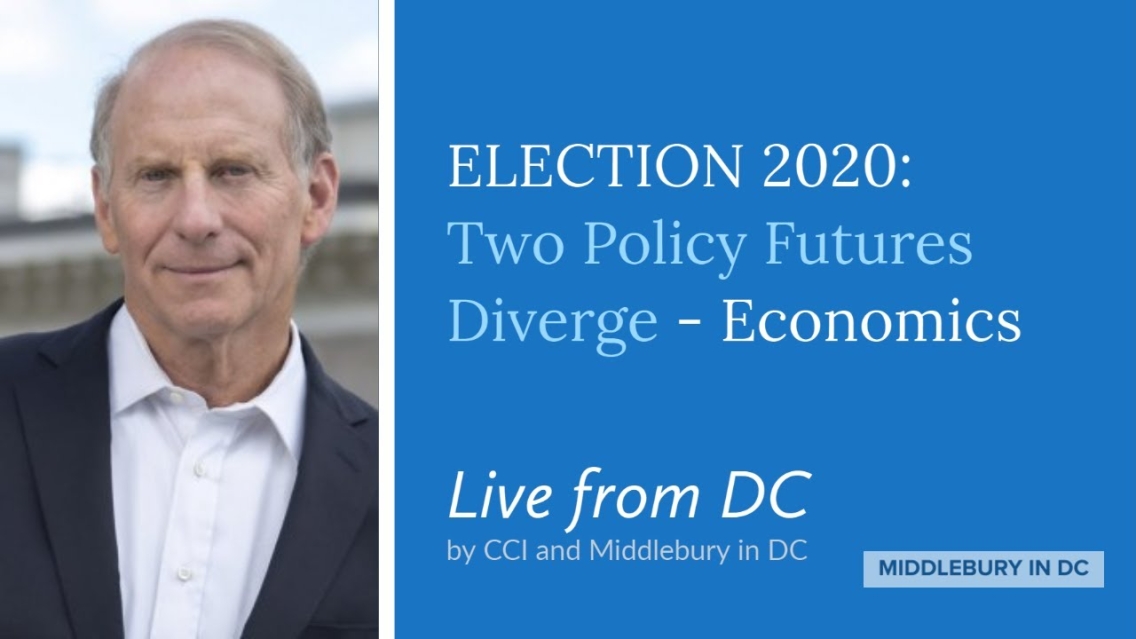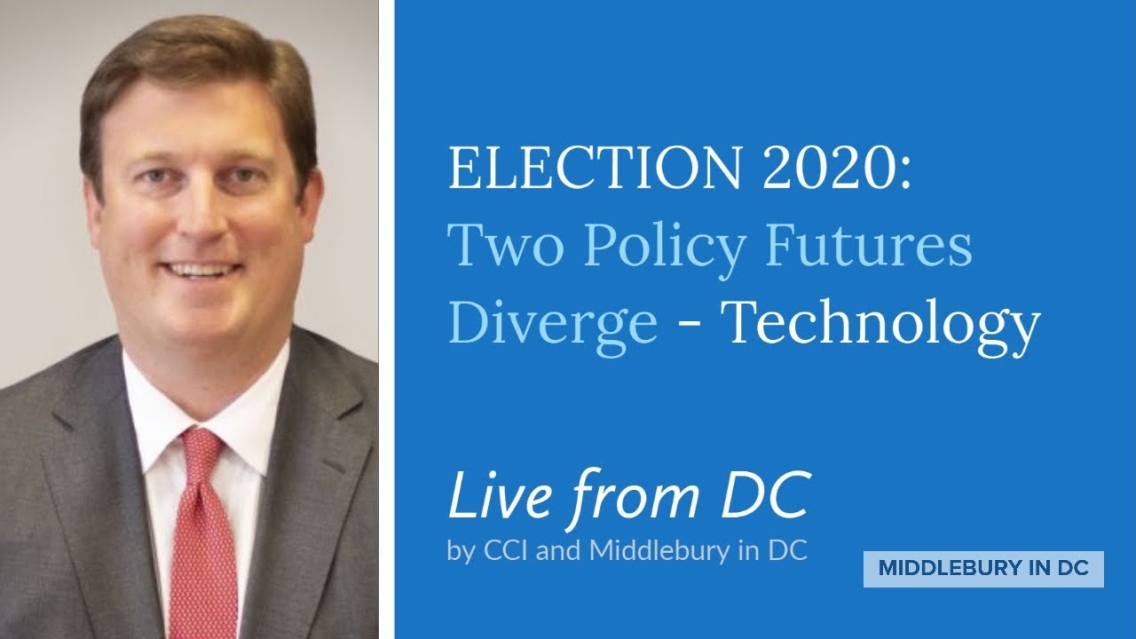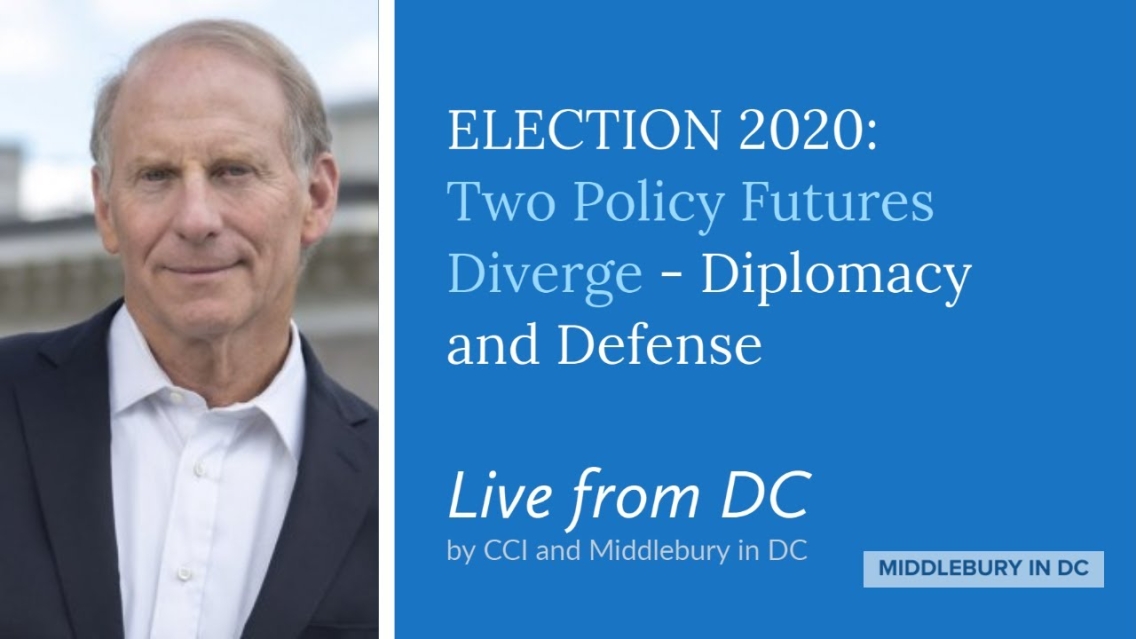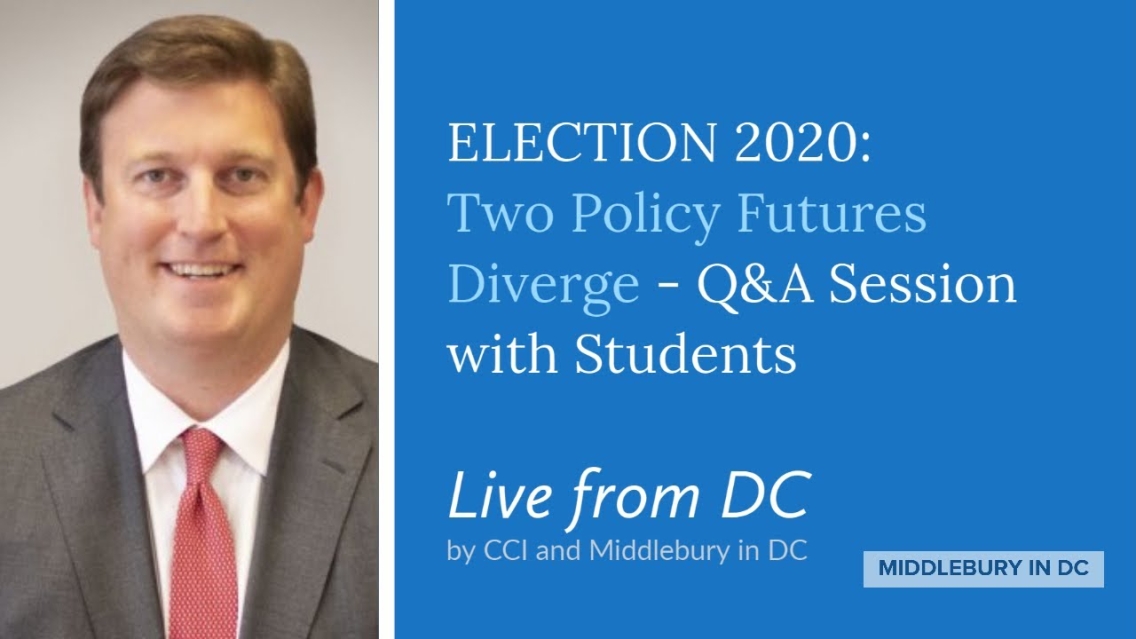Live from DC Event Recordings and Resources
Truth, Disinformation, Censorship, and Governance of the Online World
This panel discussion was held on Wednesday, December 1, 2021 at 12:30 p.m. EST
Social media platforms are conduits for user-generated content, offering essentially infinite bandwidth to target specific audiences with content that is much less moderated than traditional media organizations’ editorial boards. Instead, these platforms use complex algorithms, often exposing users to more radical posts than they may have sought out on their own. How can truth, disinformation and censorship be governed in the online world?
The Middlebury College Center for Careers and Internships and Middlebury in DC, in collaboration with the Middlebury Professional Network, bring you a discussion among professionals who have a variety of vantage points on governments’ and private enterprises’ roles in governing internet content.
The panelists include:
- Host: Ryan Kellett ’09, Vice President of Audience at Axios
- Eric Einhorn P’25, P’21, Chief of Staff, U.S. Senator Brian Schatz (D-HI)
- Eli Sugarman ’02, Director of Content, Oversight Board
The content segments below indicate the approximate time marks in the recording during which the specific content is discussed.
The segments include:
- Session introduction (0:00 to 2:43)
- Framing of the challenge with Senate Hearing video: mime or sophisticated understanding of finsta (“fake Instagram”) (2:48 to 7:18)
- Governance primer on regulation of content, e.g., section 230 and congresses intentions historically to today (7:18 to 13:11)
- Governance challenges of today and in the future (13:20 to 17:48)
- Government regulation of content vs self-regulation vs third party oversight using something like Facebook’s Oversight Board (17:49 to 31:38)
- What other countries are doing in regulating online activity/content and possible learnings for the U.S. to apply (31:49 to 40:02)
- Student Q&A (40:09 to 58:43)
Truth and Disinformation Speaker Bios
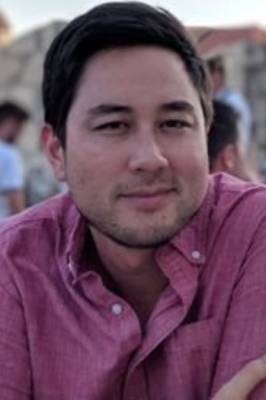
Ryan Kellett ‘09.5
Vice President of Audience at Axios
Ryan is VP of Audience at Axios, which publishes dozens of daily newsletters in the smart brevity format. In his role, he oversees social media distribution and news coverage on the web. Ryan was previously at The Washington Post for eleven years in various newsroom roles, including covering the 2012 presidential election cycle. Originally from San Francisco, Ryan graduated Middlebury (‘09.5) with a degree in International Politics and Economics. He lives in Washington D.C. with his partner Emily Culp ‘11.
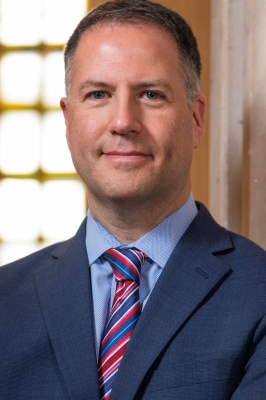
Eric Einhorn P’25, P’21
Chief of Staff, U.S. Senator Brian Schatz (D-HI)
Eric Einhorn is U.S. Senator Brian Schatz’s chief of staff and is based in Washington, D.C. He began working for Senator Schatz in 2017 as senior counsel for technology and communications policy.
Before working for Senator Schatz, Einhorn was senior vice president of government affairs and strategy for a Fortune 500 communications company. In that role he reported to the CEO, was on the executive leadership team, and was responsible for the company’s regulatory and legislative initiatives and related strategies at the federal and state levels. He previously served as vice president of federal government affairs.
Einhorn worked at the Federal Communications Commission where he served in several roles, including chief of the telecommunications access policy division in the wireline competition bureau. He also practiced law at leading law firms in New York City and Washington, and was a law clerk for Judge Roger Strand in federal district court in Phoenix, Arizona.
Einhorn holds a law degree from Boston College Law School, cum laude, where he also served as executive editor of the Boston College Law Review, and an MBA, with distinction, from Cornell University’s Johnson Graduate School of Management. He also has a bachelor’s degree in industrial and labor relations from Cornell University.
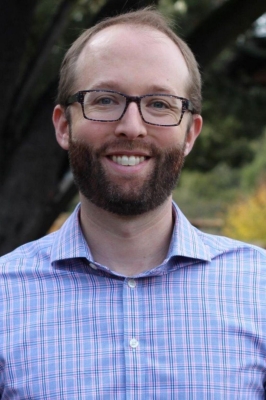
Eli Sugarman ‘02
Director of Content, Oversight Board
Eli leads the core content moderation functions of an experimental online safety and speech regulator established to guide Facebook and Instagram on their most challenging content decisions globally. Previously, he was the Director of the Cyber Initiative at the William and Flora Hewlett Foundation, leading a ten-year, $130 million grant-making effort that aims to build a more robust cybersecurity field and improve policy-making. From 2009 to 2014, Eli was senior director at an emerging markets advisory firm based in Washington, D.C., where he provided strategic counsel on international policy, regulatory, and business matters to clients globally. He has served as a foreign affairs officer at the U.S. Department of State, where he focused on international security issues. Eli also serves on the executive board of the CyberPeace Institute (CPI) and Independent Advisory Committee of the Global Internet Forum to Counter Terrorism (GIFCT). He writes regularly about cybersecurity, government surveillance, data privacy and internet governance in leading outlets. A San Diego native and graduate of Middlebury College, he holds a J.D. from Stanford University Law School.
Transitions to a Green Economy
This panel discussion was held on Wednesday, February 17, 2021 at 12:30-1:30 p.m. EST
Eleven percent of the world’s population is currently vulnerable to climate change impacts, such as droughts, floods, heat waves, extreme weather events and sea-level rise. According to the International Labour Organization (ILO) 2018 World Employment and Social Outlook report a shift to a just and greener economy could create 24 million new jobs globally by 2030 if the right policies are put in place. Green growth strategies need to be flexible enough to take advantage of new technologies and unexpected opportunities and be nimble enough to abandon one approach if a better one becomes available.
The Center for Careers and Internships and Middlebury in DC, in collaboration with the Rohatyn Center for Global Affairs, the Franklin Environmental Center, and the Climate Action Capacity Project, bring you a discussion among professionals who have a variety of vantage points on the transitions to a green economy.
This discussion will be conducted via Zoom webinar, connecting the professional guests with students from both the Middlebury and Monterey campuses, as well as, alumni and parents of the Middlebury community.
The panelists include:
- Host: Jon Isham, Professor of Economics/Environmental Studies, Middlebury College
- Jane Leggett ’78, Specialist in Environmental and Energy Policy, Congressional Research Service
- Suzanne Dael ’02, Climate Change Mitigation and Energy, European Environment Agency
- Lauren Sanchez ’11, Deputy Secretary of Climate Policy & Intergovernmental Relations, California Environmental Protection Agency
Live from D.C.: Transitions to a Green Economy
Coming soon…
Green Economy Speaker Bios
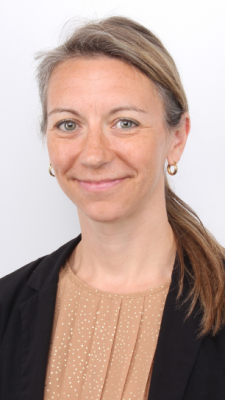
Suzanne Slarsky Dael ´02 joins Live from DC from Copenhagen, Denmark, where she works at the headquarters of the European Environment Agency. As an Expert in Climate Change Mitigation and Energy, Suzanne focuses on collecting and communicating European data and information on climate change and renewable energy. She coordinates an annual report on progress to European climate and energy targets and has recently done some more focused work at the intersection of climate change mitigation and circular economy.
Before joining the European Environment Agency in 2018, Suzanne spent a decade in Denmark’s central government, working with maritime spatial planning, communications and geodata development and distribution. In 2009, she used a year’s sabbatical in her home state of Massachusetts on sustainability issues, including the launch of an offshore energy cooperative on the island of Martha’s Vineyard.
Suzanne graduated from Middlebury in 2002 with a BA in geography and a minor in African studies. She was later granted a MSc in Nature, Society and Environmental Policy from the University of Oxford and a MSc in geography and geoinformatics from Copenhagen University.
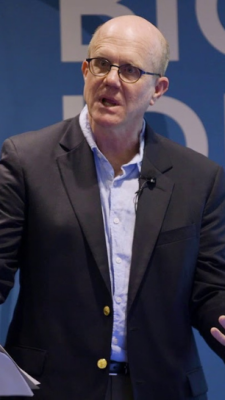
Jon Isham has been on the Middlebury faculty since 1999. He co-founded the Middlebury Center for Social Entrepreneurship in January 2012, serving as its director until 2016. He was the director of Environmental Studies from 2011-2014 and was a Fulbright Scholar at Ashesi University in 2016-17. His webpage can be found here.
Jon teaches classes about environmental policy, environmental economics, microeconomics, and social change. His research encompasses a broad range of questions about institutional determinants of well-being and sustainability. He co-edited Ignition: What You Can Do to Fight Global Warming and Spark a Movement (Island Press, 2007) and Social Capital and Economic Development: Well-Being in Developing Countries(Edward Elgar Publications, 2002); has published articles in Economic Development and Cultural Change, The Journal of African Economies, The Nonprofit and Voluntary Sector Quarterly, The Quarterly Journal of Economics, Rural Sociology, Society and Natural Resources, The Southern Economic Journal, The Vermont Law Review, World Bank Economic Review and other journals; and book chapters in volumes from Ashgate Press, The New England University Press, Oxford University Press, and Cambridge University Press. More information about his research can be found on his c.v. and his website.
Jon has an AB in Anthropology from Harvard College, an MA in International Studies from Johns Hopkins University, and a Ph.D. in Economics from the University of Maryland. He and his wife Tracy Himmel Isham and their three daughters live in Cornwall VT.
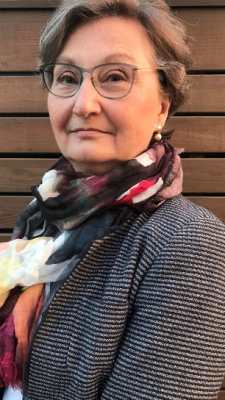
Since 2006, Jane A. Leggett ’ 78 has been a Specialist on climate change policy in the Congressional Research Service (CRS) and coordinate the topic across CRS. She provides expertise to Members of Congress and their staff on climate change science, federal programs, domestic policy on greenhouse gas mitigation, and international cooperation. For 15 years, Leggett led work on climate change mitigation and risk analysis at the U.S. Environmental Protection Agency, and collaborated in many inter-agency initiatives. She was a negotiator for the United States on the Kyoto Protocol, and led U.S. delegations on climate change work at the Organisation for Economic Cooperation and Development (OECD) for several years. Among recognitions, Leggett received EPA’s Fitzhugh Green Award for Outstanding Contributions to International Environmental Protection, and shared in the 2007 Nobel Peace Prize awarded to the Intergovernmental Panel on Climate Change and former Vice President Al Gore. Leggett was an administrator at the OECD in Paris from 1984 through 1990. She also served for brief periods in the Department of Energy, and in the Office of Management and Budget. Leggett has a Masters degree in City and Regional Planning from Harvard University (’80), and a B.A. from Middlebury College.
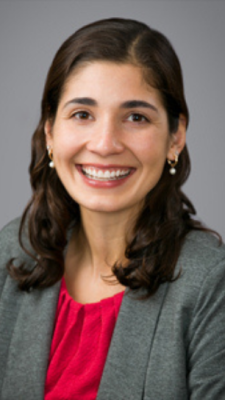
Lauren Sanchez ‘11 serves as Deputy Secretary for Climate Policy and Intergovernmental Relations at the California Environmental Protection Agency. Prior to her appointment, she served for two years at the California Air Resources Board as International Policy Director. Before moving to California, she was at the U.S. Department of State, where she served as a climate negotiator on the Paris Agreement negotiating team under former President Barack Obama. In her earlier positions, she was an advisor for the United Nations, a research project leader at Yale University and a Moran Fellow at the Natural Resources Defense Council. Lauren received her master’s degree from Yale University and bachelor’s degree from Middlebury College. She is a Fulbright Scholar.
Growing Challenges in Cyber Security
Host Robert Siudak, Visiting Fellow, Cyber Collaborative and Adjunct Faculty at MIIS, along with Eli Sugarman ‘02, Program Officer for the Cyber Initiative, William and Flora Hewlett Foundation, Mia Little ‘07, Cyber Security Attorney - Digital Crimes Unit, Microsoft, and Adam Markun ‘17, Security Analyst, FireEye, joined us on February 10, 2021 to discuss the growing challenges in cyber security.
As of 2020, at least a third of all data passes through the cloud, and within five years, there will be over 50 billion smart connected devices in the world. 5G and increased bandwidth will enable machines, robots, and autonomous vehicles to collect and transfer more data than ever, leading to advances in the area of the Internet of Things (IoT) and smart machinery. The recent Russian cyber attacks through SolarWinds serves notice that with these technological advances come great concerns regarding data privacy, data security, and how cyberspace should be governed.
The discussion was recorded on 2/10/21. You can view it below.
Coming soon…
Cyber Security Guest Speakers

Mia Little ’07 is a Cybersecurity Attorney with the Digital Crimes Unit at Microsoft. She identifies and develops new legal strategies to support technical countermeasures developed for the purpose of neutralizing, disrupting, or diminishing the propagation of ransomware used by cyber-criminals to attack businesses, governments, and users globally across a variety of platforms and devices. Prior to joining Microsoft, Mia’s experiences included being a Fellow at New America with Google, focusing on Privacy & governmental surveillance law; a legal fellow with the U.S. Department of Justice and the Office of the Director of National Intelligence; and a Digital Network Analyst with the U.S. Department of Defense. She has he J.D. from the American University Washington College of Law, a Master of Laws from Seattle University School of Law, a Master of Science in Intelligence Analytics from The Johns Hopkins University, and her B.A. from Middlebury College in Arabic & Islamic Studies.

Adam Markun ‘17 is a Security Analyst for FireEye where he utilizes digital forensics, malware reverse engineering, threat intelligence, and programming to protect clients from foreign and domestic cyber threats. Previously, Adam worked as a Digital Forensics and Incident Response consultant for Stroz Friedberg, an Aon Company, where he responded to cyber attacks directed towards individuals and companies alike. He graduated from Middlebury College in 2017 with a major in Computer Science and a minor in Mandarin.

Robert Siudak, Visiting Fellow, Cyber Collaborative and Adjunct Faculty at the Middlebury Institute of International Studies joins the Middlebury Institute as a Fulbright Scholar and Adjunct Professor for the Nonproliferation and Terrorism Studies degree program. He is passionate about the interplay between new technologies, public policy and security. His is excited to be conducting research at MIIS because it gives him a global perspective on the local challenges we all face in the process of digital transformation. Robert serves as a Chair of the Board at the Polish Cybersecurity Cluster #CyberMadeInPoland which represents the Polish IT-sec industry. He also supports Expertise on Demand (EonD) global expert network as a Strategy and Innovation Manager.
Previously he worked at the Kosciuszko Institute as Advocacy and Strategic Projects Director and Editor-in-Chief of the European Cybersecurity Market journal. Robert is also a founding member of Global EPIC (The Global Ecosystem of Ecosystems Partnership in Innovation and Cybersecurity) which promotes international collaboration of regional ecosystems for the development of secure technologies.
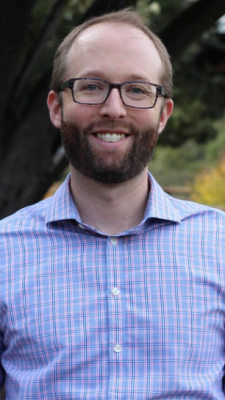
Eli Sugarman ‘02 is Director of the Cyber Initiative at the William and Flora Hewlett Foundation. He leads a ten-year, $130 million grant-making effort that aims to build a more robust cybersecurity field and improve policy-making.
Previously, he was a consultant and strategist to private sector and nonprofit leaders. From 2009 to 2014, Eli was senior director at an emerging markets advisory firm based in Washington, D.C., where he provided strategic counsel on international policy, regulatory, and business matters to clients globally. He has served as a foreign affairs officer at the U.S. Department of State, where he focused on international security issues.
Eli also serves on the executive board of the CyberPeace Institute (CPI) and Independent Advisory Committee of the Global Internet Forum to Counter Terrorism (GIFCT). He writes regularly about cybersecurity, government surveillance, data privacy and internet governance in leading outlets. A San Diego native and graduate of Middlebury College, he holds a J.D. from Stanford University Law School.
Global Security and Great Power Relations
Host Mark Williams, Director of the Rohatyn Center for Global Affairs, along withStewart M. Patrick P’24, Senior Fellow, Council on Foreign Relations,David Wisner ’04, Deputy Director for Press & Strategic Communications for Near Eastern Affairs Bureau, U.S. Department of State, andStone Conroy ’10, Manager, Geopolitical Analysis & Intelligence, United Airlines, discuss the capacity of great powers—China, the EU, India, Japan, Russia, and the United States— to cooperate in tackling some of the world’s most pressing challenges. Among these are climate change, cyber security, illicit trafficking, pandemics, proliferation, and terrorism.
Check out the curated list of helpful resources our panelists shared with us.
Live From DC: Global Security and Great Power Relations - January 27, 2021
Coming soon…
Global Security Guest Speakers
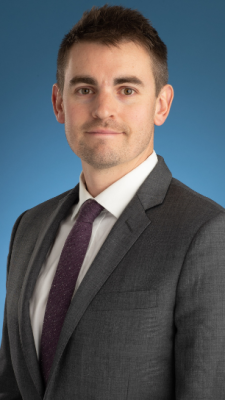
Stone Conroy ‘10 is the Manager for the Geopolitical Analysis & Intelligence team at United Airlines, where he conducts risks assessments of international security issues and provides analytical support to company leaders during crisis situations such as terrorist attacks, political instability, or civil unrest. In addition to his job at United, Stone is currently the Co-Director of the Chicago chapter of the Truman National Security Project.
Prior to this Stone spent several years on the Outreach and Engagement team at the U.S. Department of State’s Overseas Security Advisory Council (OSAC). In this position, he promoted security cooperation and information sharing between the State Department and private sector organizations operating around the world. Stone has also worked a several non-profits in the peacebuilding space, where he focused on the economics of building peace and preventing conflict.
Stone was a 2013-14 Boren Fellow in Nigeria where he worked on conflict management programs for Mercy Corps, in addition to studying a local language that was critical for U.S. national security interests. Stone holds a master’s degree in Conflict Resolution from Georgetown University and attended Middlebury College for undergraduate studies.
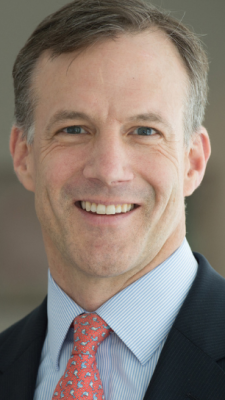
Stewart M. Patrick P’24 is James H. Binger senior fellow in global governance and director of the International Institutions and Global Governance (IIGG) Program at the Council on Foreign Relations (CFR). His areas of expertise include multilateral cooperation on global issues; U.S. policy toward international institutions, including the United Nations; and the challenges posed by fragile and post–conflict states. Patrick is the author of The Sovereignty Wars: Reconciling America with the World, as well as Weak Links: Fragile States, Global Threats, and International Security. He is co-author of the October 2020 CFR Task Force Report Improving Pandemic Preparedness: Lessons from COVID-19.He also writes a weekly column for World Politics Review, as well as the CFR blog, The Internationalist. He is on the international steering group of the Paris Peace Forum.
From 2005 to April 2008, he was research fellow at the Center for Global Development. He directed the center’s research and policy engagement on the intersection between security and development, with a particular focus on the relationship between weak states and transnational threats and on the policy challenges of building effective institutions of governance in fragile settings. He also taught at Johns Hopkins University’s School of Advanced International Studies.
From September 2002 to January 2005, Patrick served on the secretary of state’s policy planning staff, with lead staff responsibility for U.S. policy toward Afghanistan and a range of global and transnational issues, including refugees and migration, international law enforcement, and global health affairs. He joined the staff as an international affairs fellow at CFR.
Prior to government service, Patrick was from 1997 to 2002 a researcher at the Center on International Cooperation at New York University, where he ran two multi-scholar research programs on post-conflict reconstruction and on multilateralism and U.S. foreign policy.
Patrick graduated from Stanford University and received two master’s degrees and his doctorate in international relations from Oxford University, where he was a Rhodes Scholar. He is the author, coauthor, or editor of five books. He has also authored numerous articles and chapters on the subjects of multilateral cooperation, state-building, and U.S. foreign policy. Patrick lives in Bethesda, Maryland. He has three children.
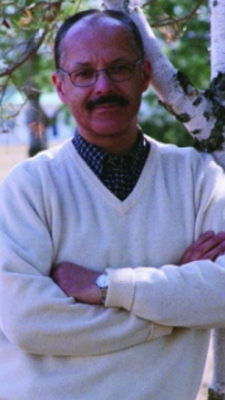
Mark Williams (Ph.D Harvard) is Professor of Political Science at Middlebury College. His research interests include international politics, U.S.-Latin American Relations, Venezuelan Foreign Policy, Comparative Latin American Political Economy, and Mexican Politics. A past President of the New England Council on Latin American Studies, he is the author of Understanding US-Latin American Relations: Theory and History (2011), and Market Reforms in Mexico: Coalitions, Institutions, and the Politics of Policy Change (2001). His articles have been published in such journals as Foreign Affairs Latinoamérica, World Development, Political Science Quarterly, Latin American Politics and Society, Studies in Comparative International Development, Mexican Studies/Estudios Mexicanos, the Yale Journal of International Affairs, and International Journal of Politics and Ethics.
David Wisner ‘04 is currently the Deputy Director for Press and Strategic Communications and the Spokesperson for the Bureau of Near Eastern Affairs. David previously ran the political and economic section at the U.S. Embassy in Algeria, was the Tunisia Desk Officer at the State Department, and was a Staff Assistant to two Assistant Secretaries of State for Near Eastern Affairs. He was also a Special Assistant to Counselor Kristie Kenney covering the Middle East and Africa. David has also served at our Embassies in Khartoum, Sudan, and Bangui, Central African Republic as well. David speaks Arabic and French. He is a graduate of Middlebury College in Vermont and the Taft School in Connecticut.
Election 2020 - Two Policy Futures Diverge
Richard Haass P’16.5, President of the Council on Foreign Relations and Chris Matthiesen ’04, Partner at Federal Hall Policy Advisors, discuss the foreign and domestic policy continuum represented by the two Presidential candidates’ policy prescriptions, as well as, the implications for future federal government agency, think tank, NGO, and international relation career roles.
View the full recorded event here (from October 2020) or check out the shorter segments split into a select number of domestic and foreign policy matters below.
Public Health
Jeffrey Sawyer:
Let’s begin with something that currently is affecting us all, public health especially during the pandemic. Chris, let’s start with the domestic policy side. How would you characterize the two candidates’ pandemic policy positions, and where would you see career related activities under the two future scenarios?
Chris Matthiesen ‘04:
Thanks, Jeff. I think the basic disagreement between the two candidates or the basic delineation of their policy projections is their thinking about the role of federal government in the pandemic response itself, and the willingness to rely on the public health experts regardless of the outcome.
Chris Matthiesen ‘04:
We’ve seen President Trump a little more reticent to play up the need for certain measures to be taken and downplay the threat of the virus, generally. I think he wanted to run on a strong economy and, therefore, was hesitant to take many steps that would have a negative impact on the economy. That left us with a situation where the governors, particularly in the outset, mayors, other executive state and local level were left to their own devices to set up their policies and procedures for testing and contact tracings, and things such as that.
Chris Matthiesen ‘04:
I think Biden has expressed more of a willingness to bring a little bit of leadership role back into the federal government, put some national standards forward, talk of mass mandates and things, if those are doable, and setting examples to where the states should go with their policies.
Chris Matthiesen ‘04:
He thinks that you can’t really get the economy back on track until you’ve addressed the virus. So, maybe more of a willingness to listen to the public health experts even if it stings a little economically.
Chris Matthiesen ‘04:
There’s a debate playing out in the congress that either candidate, depending on how they win or depending on who wins, would take up the mantle up, which is after the passage of the Cares Act back in April-May timeframe, we all thought that there was going to be a pretty quick leader after another bill, a large bill, relief bill, and that as of yet hasn’t happened, and I don’t anticipate that it will until after the election. The timeframe there will be different depending on who wins, I think. I think if it’s the status quo, Trump remains the president and the senate remains in Republican hands, you’re likely to see action before the end of the year on a smaller relief package to clear the deck for the next term, so that’s not hanging over his head as he enters the second term.
Chris Matthiesen ‘04:
They are much more focused on support for small businesses, liability protections for businesses, their line of industry, things such as that. Whereas the Democrats and likely Biden are much more willing to go big on this piece of legislation. The house has already passed the Heroes Act, they’ve called it. Two versions of it, one at 3.4 trillion, one at 2.2 trillion, which encompass all those things, as well as significant funding for state and local governments, healthcare workers, and other measures.
Chris Matthiesen ‘04:
Should Biden win and particularly if the senate flips to the Democrats, you can expect a much larger piece of legislation probably though not until the first quarter of next year. I think in terms of the job situation this presents, I think it’s a growing public policy sector regardless of who wins. I mean, there’s going to be a lot of attention paid to this. I think if it’s a Biden administration, obviously, there will be more roles within the federal government. There will be more of an emphasis on understanding what’s going on now and planning for another potential pandemic, but that’s not to say in the Trump administration, I think there’d still be a lot of jobs in think tanks, academia, certainly the states, things such as that. So, I think regardless of the outcome, there’ll be some opportunities here.
Jeffrey Sawyer:
Thanks, Chris. Naturally, Richard, the pandemic is affecting not just the US, but the world. How would you characterize the two candidates’ pandemic policies from a foreign policy perspective, and what do those positions imply regarding activity levels?
Dr. Richard Haass P ‘16.5:
The first thing to say is their positions on the domestic response could not be more different, and that’s a foreign policy issue. How we act here has all sorts of consequences for how we are perceived around the world. I would simply say that I can’t imagine. There’s too many people around the world who want to emulate our response to COVID-19. Also, obviously, it is having implications for our economy, for our society, all of which I think will distract us from our ability to be active in the world.
Dr. Richard Haass P ‘16.5:
So, even though we don’t think of this as a “foreign policy issue”, there’s all sorts of adverse implications. For students watching this, it’s a textbook case of why the world matters. What began in Wuhan did not stay in Wuhan. Indeed, very little stays local for long. People only internalized one message from COVID-19. It’s that. By the way, there’ll be a COVID 20 something and 30 something. This is not a one-off event. Infectious disease is part and parcel of globalization, and we need to prepare for that.
Dr. Richard Haass P ‘16.5:
In term of differences in policy besides all the domestic issues that Chris alluded to, I’d say two things particularly on the foreign policy side. I believe a Biden administration would very quickly reenter the World Health Organization not because it is not flawed, but because it is flawed, and we are more likely to have influence over it if working from the inside rather than simply criticizing from the outside.
Dr. Richard Haass P ‘16.5:
I also believe the United States would probably find a way to participate in the global vaccine effort. There’s a global effort underway to develop, manufacture, and distribute a vaccine. It’s the right thing to do from a public health point of view. It’s the right thing to do from a humanitarian point of view. It’s also the right thing to do from self-interest. If it turns out that vaccines are first developed elsewhere, we don’t necessarily want to be at the end of the queue. So, I think the Biden administration would be much more involved.
Dr. Richard Haass P ‘16.5:
In terms of careers, look, it’s everything from the World Health Organization, which is part of the UN system. It’s also a fantastic area for NGOs, for nongovernmental organizations, groups like Médecins Sans Frontières or Doctors without Borders, if you prefer, Americares, the International Rescue Committee. There’s an endless number of groups that are helping people, vulnerable populations around the world, and this could be something for those who have medical skills, doctors, nurses, what have you or a wider set of skills. So, tremendous opportunity.
Dr. Richard Haass P ‘16.5:
They’re obviously in policy-making areas, the NSC. I think in a Biden administration you’ll probably see the standing up or the recreation of a dedicated cell of people working on this. The Council of Foreign Relations a few days ago, we just came out with a large taskforce report on preparing for the next pandemic. We called for the creation of a job of a US coordinator on this issue. It’s a major national security challenge. If that were to happen, there’d be a whole office of people. So, I don’t think there will be any shortage of job opportunities, and not just at the federal government, obviously, and not just internationally, but also state and local.
Environment and Climate Change
Jeffrey Sawyer:
Okay. Let’s turn to another area, which has large domestic and global implications, the environment and climate change. Chris, on the domestic side, paint the picture of the two policy futures that could exist for the US as it relates to environmental matters and climate change. Given these two policy-driven futures, where do you see differences in the level of career-related activities?
Chris Matthiesen ‘04:
Yes. So, I think this is an area where there’s a pretty significant divergence in their policies. Trump has spent his first term deregulating at the EPA and the Department of Interior and other things, some of the environmental regulations that previous administrations and the congress have put in. He’s skeptical of the manmade nature of climate change. Biden, on the other hand, talks about a clean energy revolution, really leaning in to it maybe the crown jewels of his policy in general, economic, environmental, everything, and try to address this problem.
Chris Matthiesen ‘04:
He has a policy to set standards at the federal level for emissions, for alternative energy use, things of that nature. President Trump wants to expand domestic fossil fuel production. He’s opened up some of the public lands and things through drilling and mining activities there. Whereas previously mentioned, Biden’s a little more focused on the alternative energy.
Chris Matthiesen ‘04:
I mean, he’s very clear at least in his campaigning that he is not going to ban even the most controversial extraction methods, fracking, and otherwise, and historically as a senator has been somewhat accepting of that type of stuff, but the party has obviously gone on a little bit of a different direction there. He’s not endorsed the Green New Deal, which a lot of people have heard about, a very aggressive climate policy measure from some of the Democrats, but he’ll be focused on the climate issue.
Chris Matthiesen ‘04:
I’ve noticed a lot in the last couple of years on Capitol Hill and within the parties that while there’s a little bit of a disagreement on the causes of climate change, things of this nature, there’s more of an opportunity than ever, I think, for the parties to start working together on some of the response to what’s going on because you can’t deny flooding and fires and some of the things we’re seeing.
Chris Matthiesen ‘04:
So, I think there will be an opportunity for some activity on mitigation, remediation, things that if this is going to continue to happen, which it appears that it is, there’s going to be some policy measures that are going to need to go into place regardless of where you come down on the causes of it.
Chris Matthiesen ‘04:
I think from a jobs perspective under a Biden administration, this will be a huge area for job growth from the public policy sector. I think you’ll see every agency having dedicated people focused on the climate. He’s talking about a climate czar, which would obviously have a huge organization under it if that were a role that he’d create. Capitol Hill, they’re already tackling these issues, and then the not for-profits, think tanks, things of that nature.
Chris Matthiesen ‘04:
In a Trump administration, I think a little bit less effort from the federal government to address the issues, but private sector, based on what’s happened in the EU, and they see the writing on the wall, and are focused on this policy types of prescriptions, and so they’re leading a little bit expecting to at some point come under some more significant regulation.
Chris Matthiesen ‘04:
Then there’s always California there, too, where they’re the tip of the sphere of the large blue states, which are giant apparatus that are going to be trying to address these issues at that level.
Jeffrey Sawyer:
Okay. Thanks. So, Richard, the US under the Trump administration withdrew last year from the Paris climate agreement. Biden had said he would rejoin the accord. What do these two future scenarios mean relative to the level of foreign policy activity for a career role opportunity differences under each scenario?
Dr. Richard Haass P ‘16.5:
Well, let me just one or two things about the policy and then we’ll talk about careers. It’s true that a Biden administration would rejoin the Paris climate agreement. That said, to me, that’s not a big deal. That’s more symbol than substance. The Paris agreement is based upon voluntary national goals. Nations can be as ambitious or as modest as they wish to be when they set their goals. They can also change their goals if they wish to. It’s all voluntary. It’s not a very significant agreement even if it were met in full. Climate change will continue to happen. A lot is baked into the cake. A lot more would be added. In many cases, countries may fall short.
Dr. Richard Haass P ‘16.5:
So, I don’t think Paris is the center. There might be future agreement that would have more significance. I’m a little bit skeptical. I don’t think that kind of universal top-down, multilateralism has a great future be it in climate, in trade or in anything else. Then we’re going to have to find other ways to deal with it. It might be through trade agreements. I can imagine some future trade agreements.
Dr. Richard Haass P ‘16.5:
It will create market barriers to countries that want to export to them if they, for example, use certain energy sources or don’t set certain regulatory policies. You might have certain countries dealing with climate, again, not a universal approach. I think it’s going to have to be a lot more creative than simply thinking Paris or some version of setting up a market system, a carbon tax. I’m just skeptical of this universal approach, and not against them, necessarily, just skeptical.
Dr. Richard Haass P ‘16.5:
I also think there’ll have to be some mechanisms, almost like there is for sharing of drugs, for prescription drugs. There may need to be some mechanism globally for sharing green technology to make things widely affordable and available.
Dr. Richard Haass P ‘16.5:
In terms of careers, the answer is it’s everywhere. I think it’s going to be useful not to think of climate as a silo, but if you go to work for any business in America, if you go to work for a financial firm, there’s going to be a consideration of climate, whether it’s on a portfolio or in how business is done. I just don’t think it’s separable. I think it’s going to be pervasive to essentially everything that is done.
Dr. Richard Haass P ‘16.5:
So, whether it’s government, business, NGOs, nonprofits, it’s going to be a major, major consideration. I also think, and this gets more into the academic and intellectual side, the emphasis won’t just also be on mitigation. Yes, that’s a big slice of it, but there’s two other dimensions to climate change. One is resilience, sometimes called adaptation. No matter what we do, climate change is already happening, and it will continue happening. So, the question is, how do we minimize its effect? Whether the effects are forests or floods or severe storms, and so forth. I mean, certain countries like Bangladesh face fundamental threats, obviously, coastal areas in the United States, low-lying areas, too. So, the question is, how do we build resilience? How do we make ourselves less vulnerable?
Dr. Richard Haass P ‘16.5:
The other area, more controversial granted its GO engineering is that if the combination of mitigation and adaptation or resilience are inadequate, how do we basically turn to science to try to reverse climate change, essentially through blocking heat from the sun reaching the United States could also mean taking certain emissions, pushing them underground or what have you. I think that’s going to become a much bigger area. I know it’s controversial, but it should not be seen as an alternative to either mitigation or adaptation. It’s simply going to be one more tool, one more approach.
Dr. Richard Haass P ‘16.5:
When I look at the future world, my own view is it’s going to be necessary. I just don’t have the confidence than when I look at China, I look at India. Between them are over three billion people or close to three billion people. I just don’t think there is going to be the political commitment to take certain steps or avoid certain energy pass. I still have 30 seconds more, Jeffrey.
Dr. Richard Haass P ‘16.5:
I just want to say I made a conversation with the minister of electricity in India’s government, and I was talking about climate. He said, “Mr. Ambassador, I understand your point, but we still have 500 million people in our country who don’t have regular access to electricity, and that’s an untenable situation.”
Dr. Richard Haass P ‘16.5:
Making it available is more significant for us than how electricity is generated. So, I just think we face all sorts of pushback in the mitigation effort, and I think we need to have a comprehensive approach to climate change, and this is where, again, people at the forefront of science and engineering and business, that intersection, could have an enormous impact.
Jeffrey Sawyer:
Obviously, very complicated situation and with complexity comes opportunity. So, it certainly sounds, based on both of your descriptions, there’ll be plenty of activity for students that are interested in this particularly arena. The other thing both of you have mentioned is it comes back to economics.
Economics
Jeffrey Sawyer:
So, let’s turn our attention a little bit to the economic policy prescriptions. So, Chris, talk to us about those being proffered by the candidates. How would you summarize them, and given their diverging areas of emphasis and approach, where would you see growth areas for those interested in policy-related careers?
So, let’s turn our attention a little bit to the economic policy prescriptions. So, Chris, talk to us about those being proffered by the candidates. How would you summarize them, and given their diverging areas of emphasis and approach, where would you see growth areas for those interested in policy-related careers?
Chris Matthiesen ‘04:
Yes. The first thing to discuss with the economy is the pandemic. Again, I alluded to it a little bit in the beginning, but in a Biden administration, you’d see in the first quarter probably a very large investment from the federal government in a relief effort. On top of that or along with that, depending on how scared off moderate Democrats get on voting, I’m voting for something like that, I think there is probably going to be an effort to do an infrastructure type of stimulus bill, get people back to work, infrastructure is crumbling anyway.
Chris Matthiesen ‘04:
The house has already passed their marker there, and I think that could be the basis for another type of stimulus package, not as much relief, but looking forward to getting people back to work, getting money to the economy.
Chris Matthiesen ‘04:
If you remember after the financial crisis, Obama and Biden administration came in and they passed the stimulus package pretty early of a quaint little $800 billion that we’ve dwarfed that with these relief packages that we’ve been doing now. The end result there was people thought it didn’t go far enough. They could have gone a lot harder. There’s obviously political will problem not just from Republicans, but moderate Democrats who don’t like to attach their name to multitrillion dollar bills, but I think Biden will remember that and want to go big. Certainly, the various chairman of the committees of jurisdiction of the Democratic side, should they be in control in the senate, and they will be in control in the house, have decades of priorities. So, there are no shortage of stuff there.
Chris Matthiesen ‘04:
Taxes, obviously, is a major area of disagreement between the two candidates affecting the economy. Trump signed the tax cuts in Jobs Act in 2017, which basically cut taxes significantly for a large portion of people and specifically corporations. That’s led to pretty significant deficits even before the COVID-19 problem, but he’s running on expanding that, more tax cuts, keep that going.
Chris Matthiesen ‘04:
Biden, on the other hand, is saying he wants to raise the corporate tax rate from 21 up to 28, which is still significantly less. It was about 35, I think, before the tax cuts in Jobs Act. He wants to tax high income individuals and households, has pledged not to tax anybody under $400,000 a year of income. You’re going to have to pay for a lot of these policy priorities be it the environment, the pandemic, healthcare, things like that. So, that goes with the territory.
Chris Matthiesen ‘04:
Another issue, healthcare is an important economic issue we’re seeing, where this Supreme Court situation, you’re hearing a lot about it and how it’s playing out. There’s a lot of talk if the Affordable Care Act is struck down, which may or may not happen. Where does that lead people with preexisting conditions? The Trump administration has been teasing their replacement since basically he was elected, and haven’t really seen any policy prescriptions yet to go off of, but Biden on the other hand, he was there famously with the big blip and deal to Obama when they did pass the Affordable Care Act. He wants to expand that, make that work.
Chris Matthiesen ‘04:
The most important piece that they didn’t get to address that I know they really wanted to was creating a public option for healthcare. I think he’ll start there and really push hard to have a public option to compete with the private insurance companies and hopefully bring costs down there, and put some of the more less wealthy people on that.
Chris Matthiesen ‘04:
We touched on the environment already as it relates to the economy, but it’s worth mentioning again. It will be a clean energy economy under Biden. There will be a lot of investment there that will just resonate throughout the industry. For me, personally, as a multi-client lobbyist, a lot of the areas where I see business development opportunities within this, particularly in the financial sector, as the ambassador mentioned earlier, it’s going to be pervasive throughout sectors of the economy. The financial industry, in particular, is on the block be it the insurance companies, but also the banks and investment companies, and there’s a lot of attention paid on what their investment are, how climate risk plays in. There’s going to be a lot of discussion on that.
Chris Matthiesen ‘04:
The other big business opportunity I see is really to diversity and inclusion policy under a Biden administration. When the Democrats took the house in ‘18, for example, again, the financial services industry, the house of financial services committees stood up a subcommittee on diversity and inclusion. There’s a lot of attention paid by the Democrats to those issues in corporate governance. I see that certainly in the financial sector, but spreading out across government agencies.
Chris Matthiesen ‘04:
So, from the jobs perspective, the public sector in general, there are thousands of jobs that just were never filled. In the Trump administration, those will be open on day one. I think there are opportunities both, obviously, in the political appointee types of roles when the administration changes, but just filling up the career jobs. There’ll be some opportunities there. Again, this climate issue and all of the policies surrounding that, this economy-wide will present jobs for public policy positions.
Jeffrey Sawyer:
Thank you, Chris. So, Richard, how about the international side? So, your views of the candidates’ prescriptions for international economic policy, including trade, and the US’ role in the global economy.
Dr. Richard Haass P ‘16.5:
Look, so much to say. There are a couple of points. One is whoever wins is going to have a situation of low interest rates. The fed has made that clear. So, monetary stimulus will essentially remain in effect for at least another couple of years. That can stimulate the economy overall. It helps those who have financial instruments and assets, but it’s not directed. So, I think as Chris correctly pointed out, there’ll be a big debate about fiscal policy, about the content of it. There’ll be fiscal stimulus no matter what. The question will be how it’s targeted. Democratic ideas will be very different. I would think that Republican, similarly, tax would be very different.
Dr. Richard Haass P ‘16.5:
The one area I don’t have a good answer on because it’s uncertain with both is trade policy. Mr. Trump sees trade as essentially, in many ways, rigged against us. He incorrectly, largely attributes most job loss to trade when it’s not. It’s because of productivity and innovation.
Dr. Richard Haass P ‘16.5:
Just as an aside, whoever wins, he’d better think seriously about reskilling and retraining of workers because that’s a structural problem, but COVID-19 and the displacement will accelerate it. So, there’s this question of a lifelong education and training, providing safety nets so people can make economic transitions. The average student graduating from Middlebury today is probably going to have 15 or 20 jobs in the course of their lives. Well, we’re not built for that as an economy, as a society. So, whoever wins is going to have to deal with that.
Dr. Richard Haass P ‘16.5:
Again, to me, the most significant trade question, well, I guess two. One is whether the United States finds a way to join what used to be called the Trans-Pacific partnership. There’s collection of countries out in the Asia Pacific representing about a fifth or a quarter of global GDP, will we become part of it? I believe we should. It makes sense economically. It makes sense strategically vis-a-vis China. The question is, would we? If so, in what terms?
Dr. Richard Haass P ‘16.5:
Mr. Trump has trashed it, but oddly enough, he used almost all big parts of its text in order to reach the agreement with Mexico and Canada. So, even though it was a “terrible” agreement, it wasn’t so terrible that he couldn’t incorporate large chunks of the text into the USMCA.
Dr. Richard Haass P ‘16.5:
So, it shows to me that he is in principle prepared to sign trade agreements. He did get it through congress, which was a significant accomplishment. So, one big issue is whether or how either a President Trump or a Biden would go about trading. It’s just really important because it will be one of the engine, one of the locomotives of US in global economic recovery coming out of the pandemic, not just a big, big question, and the politics in both parties are fraught. So, neither side shall we say has been particularly forthcoming.
Dr. Richard Haass P ‘16.5:
One or two other issues internationally that will come up, one will be supply chain securitization. Right now, supply chains have largely been designed along questions of cost and efficiency. I think coming out of COVID-19 is going to be a bipartisan movement to rethink supply chain and rethink American dependence on narrow foreign sources of supply. It might be new calls for stock piling, new calls for domestic production of certain technologies or, say, things that go into medicine that are deemed to be socially essential. So, I think you’re going to see a whole movement there that will attract bipartisan support under either a President Biden or a President Trump.
Dr. Richard Haass P ‘16.5:
Another area that you’re going to see is new controls on technology trade with China. Again, indeed, China policy, we’ll talk about it later, but there’ll be less of similarities potentially either way the election in this country goes. One of the areas we’re going to see is more constraint on the flow of technology to China and on the inflow of investment from China, where the investment is an area of significance. That will happen regardless.
Dr. Richard Haass P ‘16.5:
In terms of career ideas, again, it’s just about everyone. Whether you’re talking the financial world, the business world, the consulting world, government at every level, academic. The only thing I do have is as we’ve already in the market and elsewhere, there’s winners and losers and what always in the economy, and I think what COVID-19 has done is, again, is accelerated winners and losers.
Dr. Richard Haass P ‘16.5:
We’re seeing certain sectors of the economy, certain companies do extraordinarily well. Obviously, it’s been awful for restaurants, for retail, places where you have to congregate for travel, for sports. Well, the question is at some point, do these areas recovered once we have therapeutics, vaccines, maybe wider use of masks, so there could be recovery?
Dr. Richard Haass P ‘16.5:
Now, it may not be the same entities. There’ll be churn. I think there’ll be great churn in the economy than usual, but it seems to me the opportunities in the economy will be enormous, the technology with normal churn. So, restaurants will come back to New York. It just won’t be the same restaurants, and so forth.
Dr. Richard Haass P ‘16.5:
So, I think the economy, what’s going to happen is economic transitions are going to be telescope. So, for the next couple of years, there’ll be, actually, I think enormous opportunity in our economy, which slowing it down is obviously COVID. Once again, this combination of therapeutics, vaccines, and behavior, once we get this under control, we want to eliminate it, just to be clear. We’re looking at a future of reduced or managed risk, but once we get that risk down to a manageable level, then I think you’ll see enormous economic growth.
Technology
Jeffrey Sawyer:
Technology becomes a, I’ll call it a gorilla in terms of an opportunity area both domestically, as well as abroad. When I think about it and, Chris, if you can take just a couple of minutes to talk about what you foresee as the technology policy sets that may distinguish the two sides as we go forward.
Chris Matthiesen ‘04:
Sure. I think the technology area is frankly the area where they’re closest together. If you can imagine that, obviously, there’s a lot of disagreement, and it’s a huge issue. Some of the main topics that we see in Washington and haven’t seen are the data privacy issue, which is an issue of convergence between the two parties of congress that something needs to be done to rain in the data companies and keep people’s data private.
Chris Matthiesen ‘04:
So, there’s an agreement, but how to tackle it, there’s a little bit of a disagreement, but there’s serious efforts to do it. I think the Democrats generally want to create a floor for protection of data and data security and encourage states to go above that and there are regimes to protect data. Whereas the Republicans I think want to a ceiling where they have a blanket policy or a regime to protect data and then the states can come up to meet that.
Chris Matthiesen ‘04:
They’re not terribly far apart on those things, but it’s still very hard to get that done because you don’t want a situation where one state sets a very rigid standard and everyone else is captured by that, and any company that operates in that state or any state related to that has to apply. So, that’s the one area.
Chris Matthiesen ‘04:
The other big area is the antitrust situation with the giant tech companies. I think, again, they both agree that something needs to be done there. I think under any administration that’s going to be a bloodbath. I think they’re going to come hard at those companies they think are too big or too powerful, have too much data, too much of a big brother situation. The conservatives thinks there’s anti-conservative bias in social media. So, they’re going to come down hard there.
Chris Matthiesen ‘04:
One other issue I think, investment, R&D and tech, I think maybe a Biden administration, just like in anything I’ve been talking about, a little more willingness to spend some money from the federal level to do some research and development and encourage that type of thing.
Chris Matthiesen ‘04:
From a job’s perspective, I think as I mentioned antitrust law. If anybody is interested in that, there’s probably some opportunities there. Then my profession, lobbying, there’s going to be a big, as these regulators and the congress come down hard on these companies, I think they’re going to need a lot of help.
Chris Matthiesen ‘04:
In Washington, 15-20 years ago, they were very late to the game. In Washington, even the huge companies, Microsoft, back then took forever to set up a DC office, and then they finally realized that you can be regulated out of billions of dollars or regulated into bankruptcy if you don’t keep your eye on the ball here. So, it’s already happening and been happening, but I think you’re going to see just more expansion of advocacy within the tech industry here as the hammer comes down.
Jeffrey Sawyer:
Okay. So, areas like cybersecurity, clearly, will continue to be important. Intellectual property will continue to be important. Some of the other areas when I think of technology broadly that you’ve already mentioned, both of you, in terms of the environment and alternative energy sources, clearly, will also involve a bunch of technology or to Richard’s point, I’ll say retooling of our economy and the opportunities associated with that.
Chris Matthiesen ‘04:
Quick point on the data privacy.
Jeffrey Sawyer:
I’m sorry, Chris. Go ahead.
Chris Matthiesen ‘04:
Sorry. The data privacy issue and the cybersecurity issue go hand-in-hand. I mean, that’s the point there is to protect the data, keep it out of the wrong hands. So, very, very true on cybersecurity.
Dr. Richard Haass P ‘16.5:
I think we’re at a moment where particularly in areas like AI or artificial intelligence and robotics, the pace of innovation is extraordinary and the application is unlimited. One of the interesting things, there’s very few people who understand the technology and then other things or the people understand other things, the legal, the commercial, whatever, don’t understand the technology.
Dr. Richard Haass P ‘16.5:
So, it’s a great argument for dual majors at Middlebury, but anyone who basically can work and understand applications of technology tremendous advantage, and it will affect everything. Every issue, we’ve talked about that. I’d say public health. Well, the ability to early on identify certain patterns that will tell you there has been an outbreak and so forth.
Dr. Richard Haass P ‘16.5:
So, there’s no area that we’ve talked about that won’t be affected by technology. Also, the question, this segues into the other, Chris, Jeff, is the idea of foreign interference in American politics is obviously technology-based and how we make it harder to do that and how we also try to deter or pushback against Russia and others.
Dr. Richard Haass P ‘16.5:
So, the question of how do we regulate globally the internet. It’s probably the least regulated domain in international relations. There’s virtually no rules. It’s the Wild West, and the issue is what rules ought there to be and who sets them and what happens when they’re violated, and are we moving towards multiple domains, multiple internet. If so, what are the implications of that.
Dr. Richard Haass P ‘16.5:
So, this is a big area both for technology and for people who come out more my way, which is from international relations or foreign policy. These are rich, rich and growing areas.
Diplomacy and Defense
Jeffrey Sawyer:
So, let’s turn our attention to diplomacy and defense and, Richard, I’m going to ask you to bring this portion of the program to closure with your comments. Obviously, over the last several years, we’ve witnessed numerous US withdrawals from global organizations like WHO and multilateral trade agreements like the TPP and the prospect of a withdrawal from NATO. So, I’m just curious what you think the big geopolitical challenges are and how do you think different foreign policy agendas will affect the United States’ power to influence the global agenda.
Dr. Richard Haass P ‘16.5:
In terms of diplomacy, look, the differences will be profound in most area. I think the biggest difference with a Biden administration will probably be two. One would be a greater willingness, a far greater willingness to work with partners and allies, much less unilateral.
Dr. Richard Haass P ‘16.5:
The basic instinct that a Biden administration when there’s a challenge is to go to others and work with others in Europe, in Asia in particular, unlike the Trump administration whose basic instinct has been to keep allies at bay and act unilaterally.
Dr. Richard Haass P ‘16.5:
Second of all, there’s a belief in multilateralism, and I believe in the Biden camp. So, you’ll see a rejoining of certain agreements, institutions. In Trump administration, since I coined the phrase the withdrawal doctrine, I don’t see that changing. In my experience, rarely do second term presidents move dramatically away from what they did in their first term and they believe got them reelected. So, I do think there’d be actually a significant difference.
Dr. Richard Haass P ‘16.5:
That said, as I pointed out before, a lot of the institutions out there aren’t adequate. So, a big question for a Biden administration won’t be whether they rejoin this or that agreement, but whether they can come up with better agreements or better institutions, show more promise to deal with regional or global challenges.
Dr. Richard Haass P ‘16.5:
Where I don’t think there’ll be enormous differences are such things as probably moving closer to India. I think that’s been a trend that’s been in existing for several decades. Implicit in that is also a very difficult relationship with China, might be different emphasis, trade, human rights, South China Sea, Taiwan, but I think this is a very difficult relationship going forward no matter who wins here.
Dr. Richard Haass P ‘16.5:
One big reason is because Xi Jinping. He’s a very different kind of leader, domestically and internationally. This is a more repressive China at home, a more assertive China abroad, we are going to have to deal with that. Mr. Putin is not going to change his spots, and whoever wins the elections is going to have to deal with the fact that in February, the principal nuclear arms control agreement is due to expire. So, there’s issues there. Whoever gets elected is going to have to deal with North Korea and Iran.
Dr. Richard Haass P ‘16.5:
I think the different approach would be I think the Biden administration would likely, I say likely, be more willing to embrace traditional approaches to diplomacy and arms control. Mr. Trump, basically, hasn’t, whether it’s his personal diplomacy with North Korea or his approach to Iran, which is essentially rejected diplomacy and instead try to bring about regime change through sanctions. Again, I think the Biden approach would be much traditional diplomacy.
Dr. Richard Haass P ‘16.5:
Can I say one last point? Whoever is elected, whoever sits in the oval office come January, and I’ll make the assumption that they’re not sharing the oval office come January, at some point there will be a clear winner in this election.
Dr. Richard Haass P ‘16.5:
He is going to face a reality where the domestic demands on the president are going to be enormous. COVID-19 will still be raging. Millions of people unemployed, deep political divisions, possibly worst political divisions than ever if the election is seen by 45% of America as tainted or illegitimate, racial divisions that are deep and so forth.
Dr. Richard Haass P ‘16.5:
So, one of the challenges on the foreign policy side will be essentially getting the focus there because there’ll be a tremendous pull, almost a gravitational pull on whosever sitting in the oval office to deal with things here at home.
Dr. Richard Haass P ‘16.5:
Now, obviously, ultimately, that’s part of national security as well. We can’t be effective in the world, we can’t set a good example to the world if we don’t have things here at home working fairly well. I do think that will limit certain things that we’re prepared to do in the world. I do think even here, though, there’d be a difference for Mr. Trump would be much more willing, consistent with what I’ve said before, to pull back troops from alliances. He’s already started in Europe. He could continue in Europe. He could add that to Asia. Whereas I do not think Mr. Biden would go down that path.
Dr. Richard Haass P ‘16.5:
Mr. Biden, I believe, would be much more inclined to support a lot of the foreign policy infrastructure, the core infrastructure in Europe and Asia that I would argue has served this country extraordinarily well for 75 years. Mr. Trump’s default option is to disrupt. I do not believe that is shared by Mr. Biden.
Q&A Session with Students
Jeffrey Sawyer:
We’ve covered quite a range of possible futures in this discussion. Some areas we see widely divergent policy prescriptions and perhaps in a few, closer alignment. Obviously, election outcomes down ballot will also affect future implementation of policy. I’d now like to turn to a few career-related questions from our students. Joining us for this portion of the program are Sabrina Roberts, who’s class of ‘21 at the college majoring in international politics and economics. We have Ash Hammad, class of ‘20 at the Middlebury Institute of International Studies in Monterey, pursuing a master’s in international policy and development and international trade and economic diplomacy.
Jeffrey Sawyer:
We also have Jasmine Owens, class of ‘21 at the Middlebury Institute of International Studies in Monterey, pursuing a master’s in nonproliferation and terrorism studies. Lastly, we have Drew Platt, class of ‘21 at the college, majoring in global security studies. So, Sabrina, why don’t you kick us off with questions?
Sabrina Roberts:
Yes, of course. So, thank you, Dr. Haass and Mr. Matthiesen. This has been super interesting. We’ve all really enjoyed it. So, we know that working for a federal government agency, a think tank, an NGO or just in DC in general is impacted by politics, especially during the year of a presidential election. I’m wondering which of these careers would you say are more stable during periods of political change and which of these career paths are in highest demand during times of political change?
Dr. Richard Haass P ‘16.5:
Go ahead, Chris.
Chris Matthiesen ‘04:
I’ll just say briefly, I think within the federal government I alluded to it earlier, there are career positions and there are political positions. The career positions generally stay there. They’ve gotten a little more political of late as you may have noticed, but I think there are a lot of positions, a lot of agencies, at least the domestic side, and I’m sure even probably more so. Dr. Haass can speak to it. I think within the government there’s that, but in the think tanks, they’re going to be operating regardless. Firms like mine are operating regardless if they’re prepared. So, there’s a lot of jobs out there. The political jobs are still there, too. There might be a few less and those are good ways to get into the other stuff as well.
Dr. Richard Haass P ‘16.5:
Yeah. I mean, most of the jobs are not affected by politics. Think about the military, the intelligence, the foreign service. These are career positions. Every president, by the way, when I’ll say he gets elected because there’s only been he so far, there’s about 4,000 political appointments this individual makes. It’s the top layer, but it’s a pretty thin layer because that’s the entire government. That butter spread pretty thin on the bread.
Dr. Richard Haass P ‘16.5:
So, most of the jobs in career bureaucracy are just that. They are career bureaucracy on the civilian side of the specialty side. So, there’s enormous number of positions. It’s different. The election year is obviously different for the congress. So, my first job was in the senate, and I often recommend that. It’s an easier place some time to break in. They have their own political cycles, obviously, state and local.
Dr. Richard Haass P ‘16.5:
I mean, in New York City, for example, where I hang out usually, we’re just over a year away, 14 months away from a mayoral election. Most of the city councils are also going to be turning over, so there’s career jobs but there’s political jobs, and campaigns can be great ways to get involved, and then if you’re lucky enough to choose the right candidate. Then there’s whether it’s lobbying to think tanks or academics or NGOs, it actually turns out only a small percentage of the jobs are affected by politics.
Dr. Richard Haass P ‘16.5:
Let me say one other thing because Jeff and I talked about this. If you happen to be a conservative and there’s a liberal power that be in Washington or if you tend to be progressive and there’s more conservative, I wouldn’t let that totally throw you. I think in the starting out phase of careers, I think there’s a powerful argument particularly at the federal level for getting experience and tooling up and getting smart. No one’s going to hold it against you. If you’re 26 years old and you’re working in the bowels of the Pentagon or the state department or wherever, at this point, tooling up, learning how government works, picking up skills, and so forth seems to me, really important, you’ll have then decades to ultimately payback. As you get more senior, yeah, then you have to make slightly more political calls.
Dr. Richard Haass P ‘16.5:
Do you want to work for this individual in this policy environment? I think starting out, you get a freebie or two. You get a couple of passes. Just to get the experience to get smarter, get exposed, and it’s also a great way to figure out what you’re interested in and so forth. So, I wouldn’t be put off. I mean, again, on the assumption that a lot of people here lean more towards the progressive end and might not be voting for President Trump, if he were to be reelected, I wouldn’t therefore say, “I would never go to Washington,” then the question is, “Can you still learn? Can you still make a difference at whatever level you’re there?” So, don’t let the high level politics necessarily dictate your choices.
Chris Matthiesen ‘04:
It’s even more of a reason to come and participate and learn. I think a good politician would want all manner of opinions under him or her. So, I agree.
Jeffrey Sawyer:
Good advice. Ash, do you have a question?
Ash Hammad:
Yeah, I do. First, thank you both for your comments and your insights. My question really surrounds our discussion about multilateralism and our current administration’s skepticism of the multilateral system. However, it hasn’t really just been all barked demonstrated by their withdrawal from the World Health Organization. So, my question to you both is, can this be the first step in a series of US withdrawals from multilateral institutions, and what does the future look like for the WTO, for example, under a second Trump term and conversely, a potential Biden term?
Dr. Richard Haass P ‘16.5:
Just to be clear, the withdrawal from the World Health Organization was the most recent. You’ve had the United States withdraw from the 2015 Iran nuclear agreement. We’ve already talked about the Paris climate deal. The United States did not participate in the global compact on migration. We’ve pulled back from certain trade agreements, including the TPP. So, there’s a pattern here. There’s a pattern here.
Dr. Richard Haass P ‘16.5:
I would think it continues in Trump 2.0 and it’s changed if there’s a Biden administration. I think it represents a fundamentally, a really very different philosophy about America’s way it deals with the world. You’d have to go back in some ways probably to the Jacksonian tradition in American foreign policy to see certain elements of Mr. Trump. Joe Biden is very much, as they say on Saturday Night Live, Joe Biden is very much in the tradition of I would say pretty much from Truman through Obama, and Republicans and Democrats alike, and essentially working with alliances, working with the institutions, many created in the aftermath of World War II.
Dr. Richard Haass P ‘16.5:
So, again, it’s the split between unilateralism versus multilateralism, and a willingness to see allies as partners rather than as competitors. So, it’s a fundamentally different world view, which has real implications, really on virtually every issue.
Chris Matthiesen ‘04:
I wouldn’t have a ton to add. We got heavy on the international policy given that it’s Middlebury, and I understand that, but I agree with that. I think regardless of what happens and Richard alluded to it earlier, the Capitol Hill, the senate, the house, the committees, it’s a good place to start if you disagree with the policy perspective and that’s important, to you.
Chris Matthiesen ‘04:
There’s somebody there for you to go work for and you can then work your way into a position where you’re influencing some of these decisions in a future president or whoever it may be. That’s important to note.
Jeffrey Sawyer:
Jasmine.
Jasmine Owens:
Hi. My question will be dealing with nuclear weapons and nuclear policy. I guess it may be geared more towards Dr. Haass, but I wanted to ask, how do you see the nuclear policy field being impacted by the election results? Do you think we’ll see increased focus on modernization, disarmament, et cetera? Additionally, do you think there will be a decreased or increased emphasis on the use of diplomacy to build bridges with Russia on this issue and how do you think that will affect careers available in, say, foreign service or diplomacy?
Dr. Richard Haass P ‘16.5:
Look, there’s a lot going on with nuclear things, whether just to quickly divide it, you got what’s traditionally called vertical proliferation managing, say, the US-Russian relationship, established nuclear powers. As I said, in February, there’s a big decision to make. Even if we extend the agreement, that leaves out the question of whether China participates in future agreements. Also, which systems are included.
Dr. Richard Haass P ‘16.5:
The technology is outpacing the diplomacy. So, there’s going to be fundamental questions about what systems and technologies are captured in future agreements. We’ve seen this historically. It happened when cruise missiles were invented, whenever there’s new, again, new systems. So, that’s a growth area shall we say, and a real challenge particularly against the backdrop of the current state of US-Russian and US-Chinese relationships. Then you’ve got all the proliferation issues, the horizontal ones with North Korea, Iran. If we don’t manage those too well, ultimately, others.
Dr. Richard Haass P ‘16.5:
Indeed, if Iran were to get nuclear weapons or even close to them, I don’t think the Saudis, Turks, the Egyptians and others would be far behind. If you think the Middle East is a bad place now, just imagine that one. So, I think all that’s happening.
Dr. Richard Haass P ‘16.5:
More broadly, again, it’s a science issue. We still have the labs run by the energy department where a lot of this work takes place. So, for those of you who are science-oriented, and we need people there because a lot of the generations that were instrumental to developing nuclear weapons, there’s a lot of those people who have retired or died. So, we actually have a certain gap in the people who know a lot about things nuclear.
Dr. Richard Haass P ‘16.5:
I think, again, whether you come at it from the science point of view, the policy and diplomacy point of view, nuclear weapons remain one of the fundamental challenges and manifestations of globalization. I do not think it’s going away. Disarmament is not on the horizon. Denuclearization is not coming to this North Korea. Disarmament is not coming to United States and the Soviet Union or at best, you’re going to have arms control, which just means limits of one sort or another.
Dr. Richard Haass P ‘16.5:
So, again, this is no less important than it was. It’s just not getting the attention that it used to during the cold war when this was seen as the principal arena of US-Soviet competition. I think now it’s since competing for attention with other things be it pandemics or climate change or you name it, but to those of you who are focusing on this set of issues, you will not be unemployed. I’m sorry to say, by the way. I wish I felt otherwise.
Jeffrey Sawyer:
So, I think we have time for one more question. Drew?
Drew Platt:
Thank you both so much for your time. I’m going to direct my question to Mr. Matthiesen. I think a lot of Middlebury students are very interested in working for policy advocacy shops like you mentioned with those opportunity increasing and like you mentioned earlier, I was wondering if you could shun a little light on the career pathways that get you there that are sometimes shattered in mystery, especially maybe referencing whether there are potential entry level opportunities or internships or if you need to earn your policy stripes in all scenarios before working in a career like yours.
Chris Matthiesen ‘04:
Yes. Good question. So, I think and I alluded to it earlier the Capitol Hill is the traditional way to go or federal government at large, but more the Hill. While you don’t have to have that credential, it helps, and everyone as we’re all feeling each other out as lobbyists and advocates up here, you get a sense of where the person come from politically, what his thoughts might be, and that’s important, but the most important thing is you understand how congress works as you know from polling and from your comments earlier. It’s opaque. It makes no sense logically to a certain agree. Just knowing who the leaders are, who leads on what issues, who will be in your camp or opposed to you, that takes immersing yourself in it.
Chris Matthiesen ‘04:
So, I definitely recommend the Hill. There are internships unpaid, some paid available. A really good way to get going, and this political to work on a campaign, put in your time, particularly now surrounding these important elections with your local congress person or someone you have some interest in. Then when they come to Washington, you can get hooked up with the junior level thing and then go from there. It’s a great way to get yourself a lot of power, for lack of a better word, at a very young age. You can affect policy directly in your early 20s if you’re able to be on Capitol Hill.
Chris Matthiesen ‘04:
Then pivoting to my position, there are few different ways to crack in there, but almost always they’re going to be looking from Capitol Hill. So, I would recommend that. I think now is a really good time. I mean, I know you all are in school, but volunteering on a campaign, if you’re able to be in Washington or if there are alumni listening who are in Washington looking for a job, who would like to come to Washington. There’s a period starting about now where the congress, people are leaving, people have already retired, people are going to lose those jobs, the current staffers are looking for other opportunities. Many have gotten them.
Chris Matthiesen ‘04:
So, you can sometimes get your foot in the door for two months in an office that’s going away, boost your resume, learn a little bit, make some relationships. So, there are a lot of opportunities starting now until about the first three or four months of a new session of congress that will be open, and even in the summer when some people are graduating or are ready for summer jobs. So, I’m happy to talk to anybody individually about that stuff as well if there’s an interest there because it’s not easy, but it’s pretty self-explanatory.
Dr. Richard Haass P ‘16.5:
Jeff, can I just make two quick points just to piggyback on that?
Jeffrey Sawyer:
Absolutely.
Dr. Richard Haass P ‘16.5:
One is we haven’t talked about it, but for a lot of what we’ve talked about, you are going to have to think about more education as good as this Middlebury degree is is rarely enough anymore. So, whether it’s master’s or doctorates, that’s for a lot of what we’ve talked about, that’s going to be necessary either for what you learn or as a credential or both. Without it, it could be a ceiling, and with it, it could give you lots of opportunity. Again, it’s partially credential, let’s be honest, but also a lot of it is you got to know certain stuff. So, that’s something that everybody I would think should think about.
Dr. Richard Haass P ‘16.5:
The other is, how would I put it? Think tanks have got to be part of the conversation. By and large, universities are places where you get degrees, but most American universities are no longer interested in participating in the policy debates. Policy-relevant work mostly does not happen out of universities. Policy-relevant work tends to happen out of think tanks, mostly in Washington, to some extent in New York.
Dr. Richard Haass P ‘16.5:
That ought to be something that you also think about. If you want to influence public policy, you can do it. Their ideas matter. It can also be a great way to learn as postdocs or predocs, whether it’s internships or research assistant jobs at places like mine, the Council in Foreign Relations or other institutions, Brookings, what have you, but you should think about that.
Dr. Richard Haass P ‘16.5:
Again, in your 20s, a lot of what you almost need to think about, you’re investing in yourself and tooling up, and think tanks a lot of these jobs on the Hill, in the executive branch, where have you, are great places to spend a couple of years. I often tell people, you can come spend a couple of years to council, but then we want to kick you out. Go get that advanced degree. Go get that job and come back when you have your PhD. That’s a different thing.
Dr. Richard Haass P ‘16.5:
So, I think at this stage of your life when you leave campus, think about several stops in your 20s and the ideas industry conceivably could be one of them and further educational experience is probably also going to need to be one of them.
Jeffrey Sawyer:
I wish we had time for more questions. I’d like to thank our students for joining in the conversation. That’s great. I loved the questions. To both of our guests, Richard and Chris, thank you so much for your contributions to our understanding of the two possible policy futures and your advice and counsel when it comes for the students as they consider career opportunities going forward.
Jeffrey Sawyer:
To the audience, thank you for joining us this evening. Please stay tuned for future Live from DC episodes, which will be coming in spring, which will dive deeper into specific policy fields with alumni and parents who are engaged professionally in those fields. Until then, good evening.
Election 2020 Guest Speakers
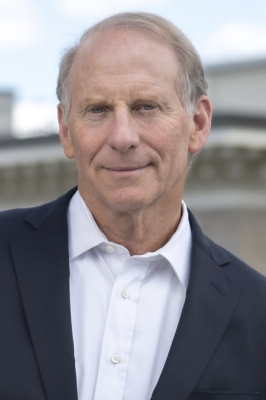
Dr. Richard Haass P ‘16.5, President of the Council on Foreign Relations
Dr. Richard Haass is a veteran diplomat, a prominent voice on American foreign policy, and an established leader of nonprofit institutions. He is in his eighteenth year as president of the Council on Foreign Relations, an independent, nonpartisan membership organization, think tank, publisher, and educational institution dedicated to being a resource to help people better understand the world and the foreign policy choices facing the United States and other countries.
In 2013, he served as the chair of the multiparty negotiations in Northern Ireland that provided the foundation for the 2014 Stormont House Agreement. For his efforts to promote peace and conflict resolution, he received the 2013 Tipperary International Peace Award.
From January 2001 to June 2003, Dr. Haass was director of policy planning for the Department of State, where he directed the policy planning staff and was a principal advisor to Secretary of State Colin Powell. Confirmed by the U.S. Senate to hold the rank of ambassador, Dr. Haass also served as U.S. coordinator for policy toward the future of Afghanistan and U.S. envoy to the Northern Ireland peace process.
Dr. Haass has extensive additional government experience. From 1989 to 1993, he was special assistant to President George H.W. Bush and senior director for Near East and South Asian affairs on the staff of the National Security Council. In 1991, Dr. Haass was awarded the Presidential Citizens Medal for his contributions to the development and articulation of U.S. policy during Operations Desert Shield and Desert Storm. Previously, he served in the Departments of State (1981–1985) and Defense (1979–1980), and was a legislative aide in the U.S. Senate.
A Rhodes Scholar, Dr. Haass holds a bachelor’s degree from Oberlin College and master’s and doctorate of philosophy degrees from Oxford University. He has also received numerous honorary degrees and was a member of the faculty of Harvard University’s Kennedy School of Government and Hamilton College.
Dr. Haass is the author or editor of fourteen books on American foreign policy and one book on management. His latest book is The World: A Brief Introduction, published by Penguin Press.
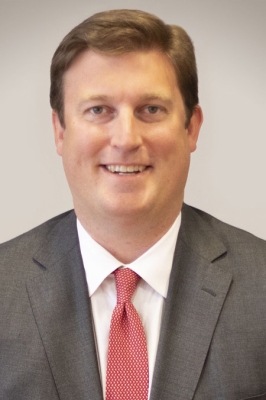
Chris Matthiesen ‘04, Partner at Federal Hall Policy Advisors
Chris Matthiesen is a partner at Federal Hall Policy Advisors, LLC, a boutique government relations firm in Washington, DC. He represents corporations, trade associations and municipal government entities in the banking, securities, insurance, federal budget, and transportation areas. During his tenure on Capitol Hill and as a government relations consultant, Mr. Matthiesen has developed many strong relationships with key decision makers in Washington and built a reputation on his ability to work across party lines.
Mr. Matthiesen served in senior roles in multiple Congressional offices in including as Chief of Staff to Congresswoman Suzanne Kosmas of Central Florida’s 24th district, a member of the House Financial Services and Science Committees and as Legislative Director to Congressman Nick Lampson of the 22nd district of Texas. He started his career in the Office of the then House Democratic Leader and current Speaker of the House, Nancy Pelosi, where he saw first-hand the tools needed to usher legislation through the process.
Mr. Matthiesen is a graduate of Middlebury College and lives in Bethesda, MD with his wife and two daughters.


